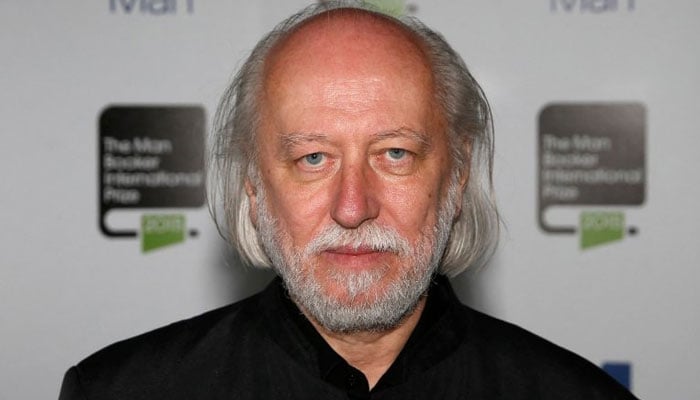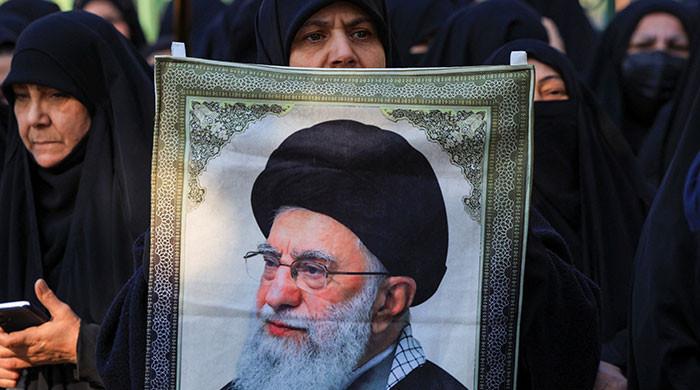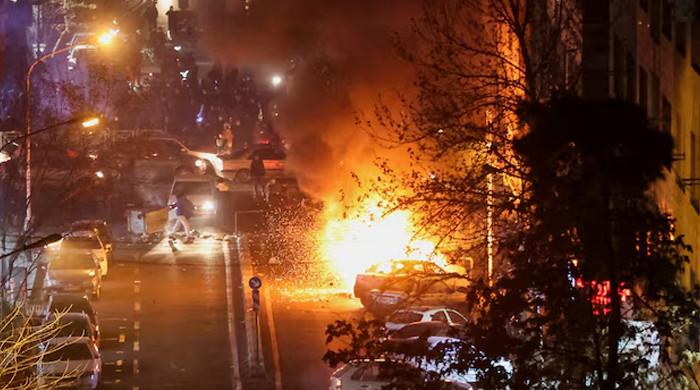Hungary's Laszlo Krasznahorkai wins Nobel literature prize
"I'm very happy, I'm calm and very nervous altogether," says Hungarian author
October 09, 2025

STOCKHOLM: The Nobel Prize in Literature was on Thursday awarded to Laszlo Krasznahorkai, considered by many as Hungary's most important living author whose works explore themes of postmodern dystopia and melancholy.
The Swedish Academy honoured him "for his compelling and visionary oeuvre that, in the midst of apocalyptic terror, reaffirms the power of art."
"I'm very happy, I'm calm and very nervous altogether," the author told Swedish broadcaster Sveriges Radio.
"It is my first day as a Nobel prize winner," he said.
The Academy highlighted Krasznahorkai's first novel published in 1985, "Satantango", which brought him to prominence in Hungary and remains his best-known work.
The Academy called it "a literary sensation".
Krasznahorkai is "a great epic writer in the Central European tradition that extends through Kafka to Thomas Bernhard, and is characterised by absurdism and grotesque excess," the Academy said.
"But there are more strings to his bow, and he also looks to the East in adopting a more contemplative, finely calibrated tone."
"The result is a string of works inspired by the deep-seated impressions left by his journeys to China and Japan," it said.
Krasznahorkai was among those mentioned as a possible winner in the run-up to the prize.
The permanent secretary of the Academy, Mats Malm, said he had managed to contact the newest laureate to inform him.
"I just reached Laszlo Krasznahorkai on the telephone on a visit in Frankfurt, where he was," he said.
"We have started to discuss things, about arrangements in December (for the prize ceremony in Stockholm), but not come so far yet."
Krasznahorkai, now 71, grew up in a middle-class Jewish family.
He has drawn inspiration from his experiences under communism, and the extensive travels he undertook after first moving abroad in 1987 to West Berlin for a fellowship.
His novels, short stories and essays are best known in Germany -- where he lived for long periods - and his native Hungary.
Critically difficult and demanding, his style was described once by Krasznahorkai himself as "reality examined to the point of madness".
'Literary sensation'
"It is Laszlo Krasznahorkai's artistic gaze, which is entirely free of illusion and which sees through the fragility of the social order, combined with his unwavering belief in the power of art that has motivated the Academy to award him this prize," Academy member Steve Sem-Sandberg said.
He is the second Hungarian to win the prize, after the late Imre Kertesz won it in 2002.
Last year, the award went to South Korean author Han Kang, the first Asian woman to win the Nobel.
The Academy has long been criticised for the overrepresentation of Western white men among its picks.
Women are vastly under-represented among its laureates - just 18 out of 122 since it was first awarded in 1901.
The Swedish Academy has undergone major reforms since a devastating #MeToo scandal in 2018, vowing a more global and gender-equal literature prize.
The Nobel Prize comes with a diploma, a gold medal and a $1.2 million prize sum.
Krasznahorkai will receive the award from King Carl XVI Gustaf in Stockholm on December 10, the anniversary of the 1896 death of scientist and prize creator Alfred Nobel.











